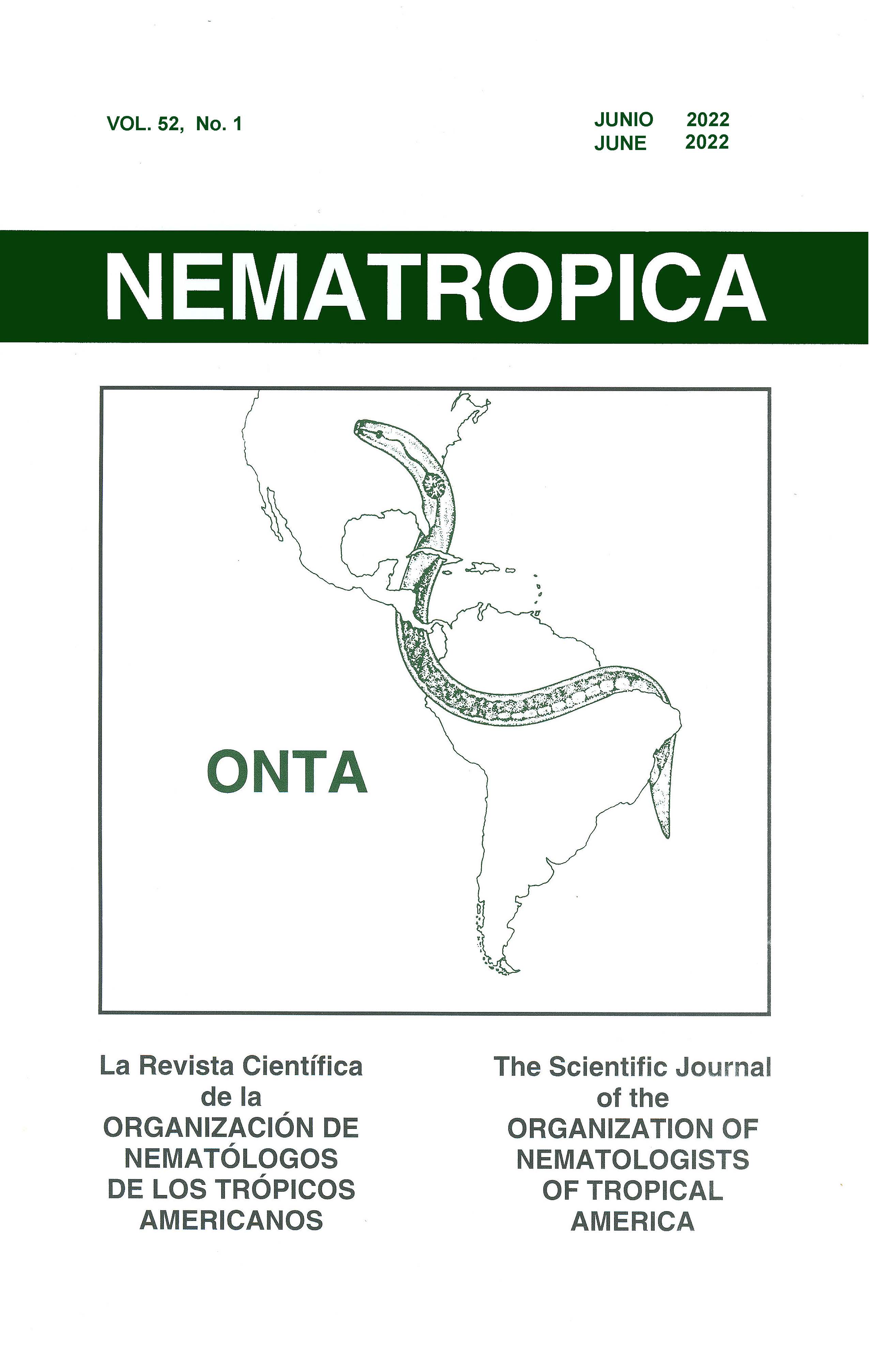MELOIDOGYNE SPP. INFECTING ASIAN VEGETABLES IN CENTRAL FLORIDA, USA
Abstract
Asian vegetables are important specialty crops in Florida, but no information is available on their host status to plant-parasitic nematodes, in particular to Meloidogyne spp. Meloidogyne spp. are one of the main soilborne pathogens in Florida and cause considerable damage to many vegetables. We conducted a nematode survey on 10 Asian vegetable farms in Hillsborough County, FL, all owned and operated by Vietnamese growers. A total of 66 root samples representing 20 commonly grown Asian vegetables were collected and evaluated for the presence of Meloidogyne spp. Meloidogyne females were dissected from roots and collected for molecular identification using primer sets TRNAH/MRH106 and MORF/MTHIS, followed by restricting PCR products using HinfI and MnlI restriction enzymes. Species-specific primers were used to confirm Meloidogyne spp. and mtDNA sequencing was used when needed to confirm the identification. We identified four Meloidogyne spp., M. arenaria, M. enterolobii, M. haplanaria, and M. incognita, infecting Asian vegetables. Meloidogyne enterolobii was the most commonly found Meloidogyne spp. and accounted for almost 75% of positive samples. Our study revealed that Meloidogyne spp. are widespread in Asian vegetable farms and especially M. enterolobii. Meloidogyne enterolobii is considered one of the most damaging Meloidogyne spp., and its high prevalence in Asian vegetable farms is of concern. Asian vegetable growers need to be made aware of this nematode as well of the threat of other Meloidogyne spp. to production. Nematode management programs need to be implemented in these Asian vegetable farms to help growers overcome the loss caused by Meloidogyne spp. and ensure the sustainability of their farms.

